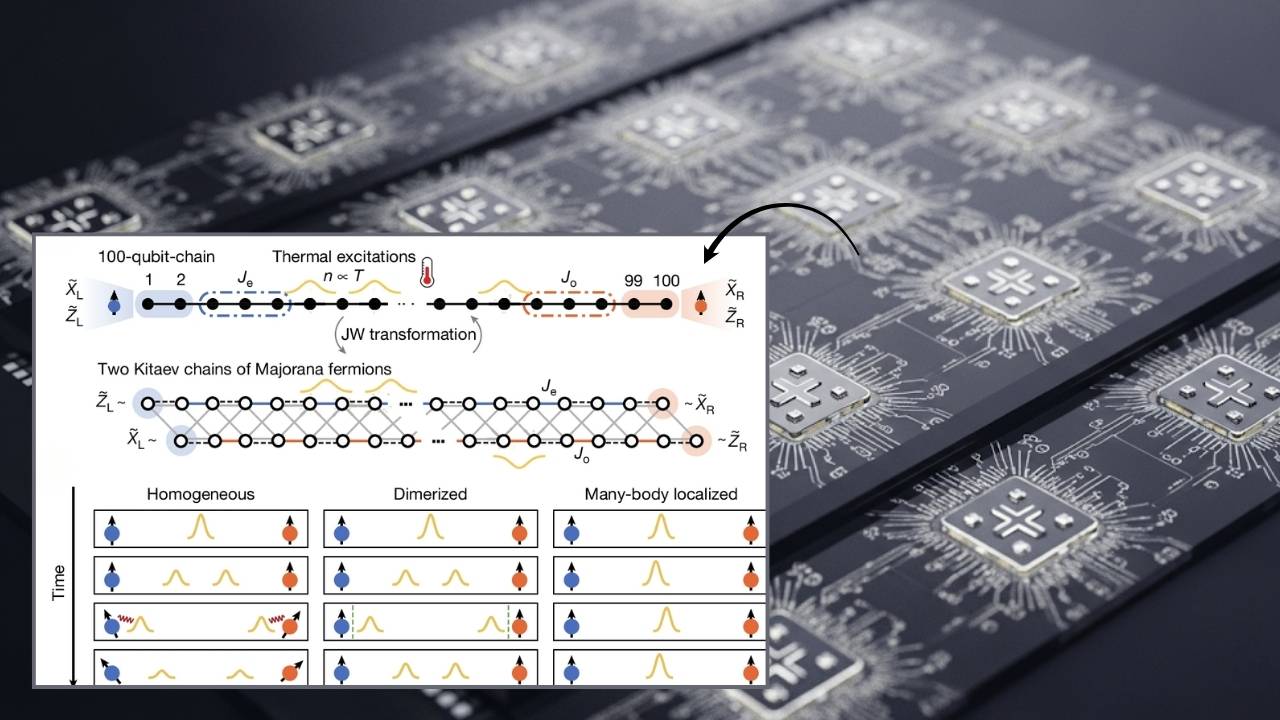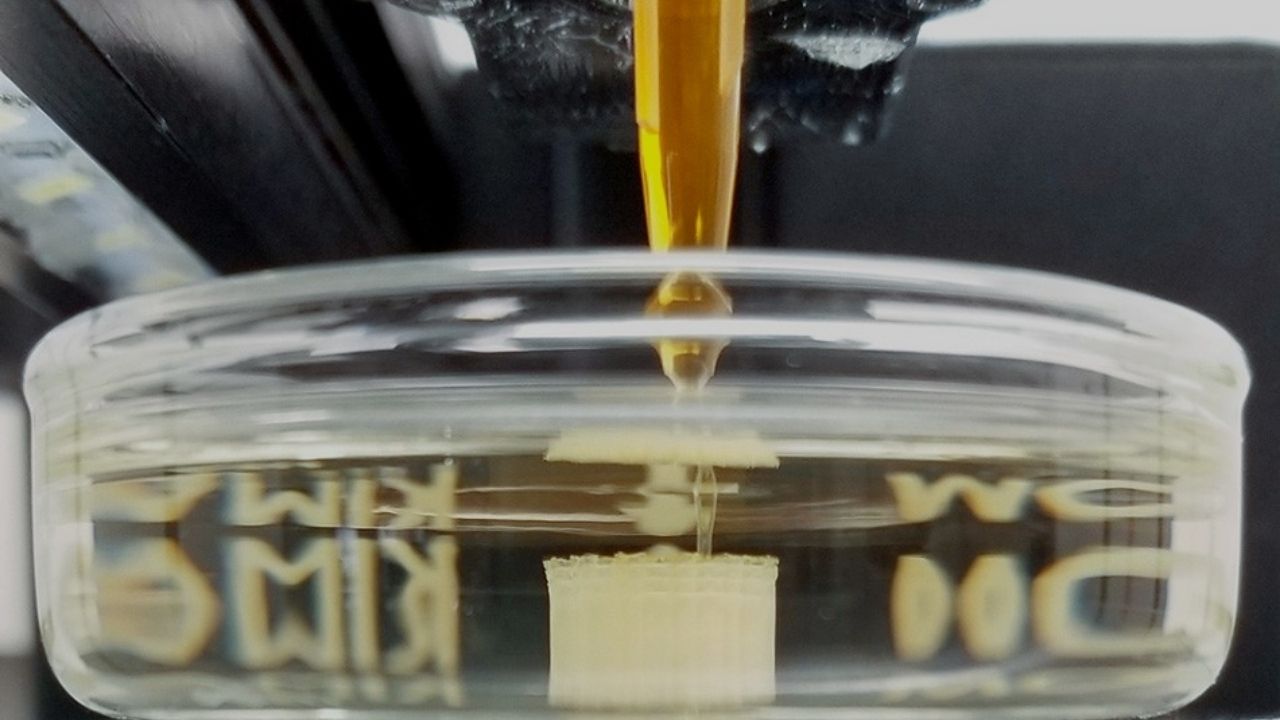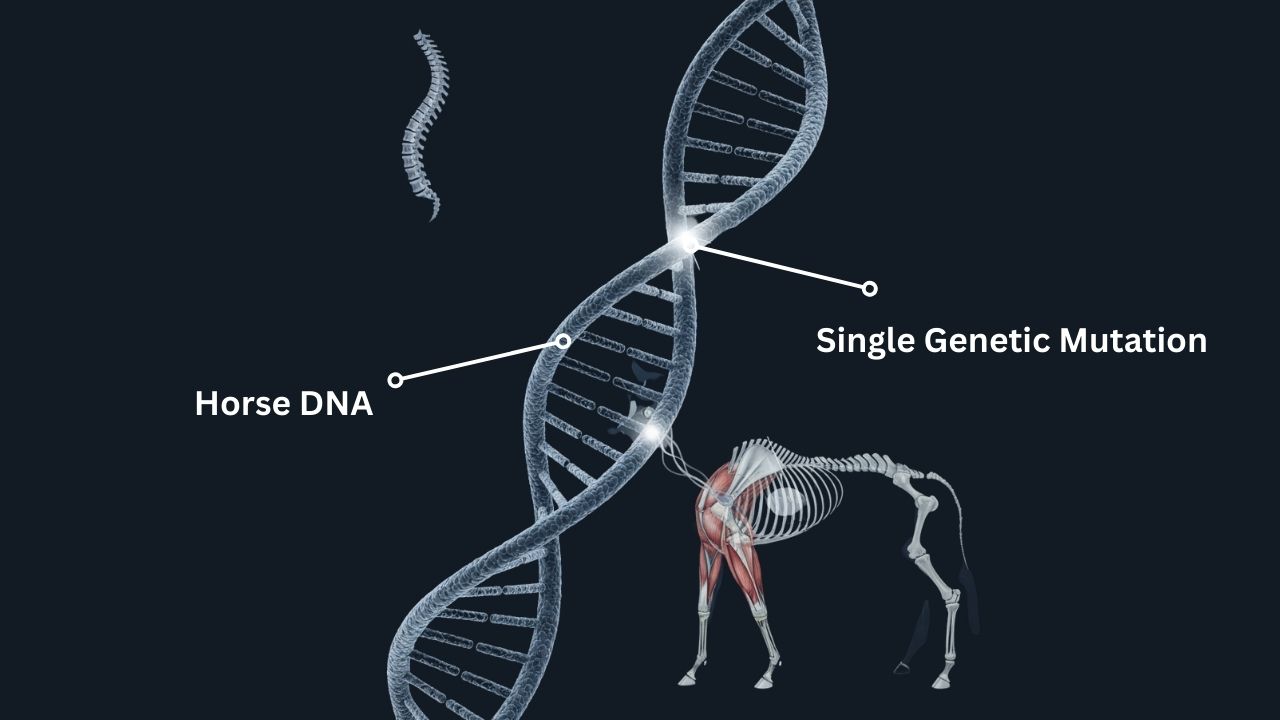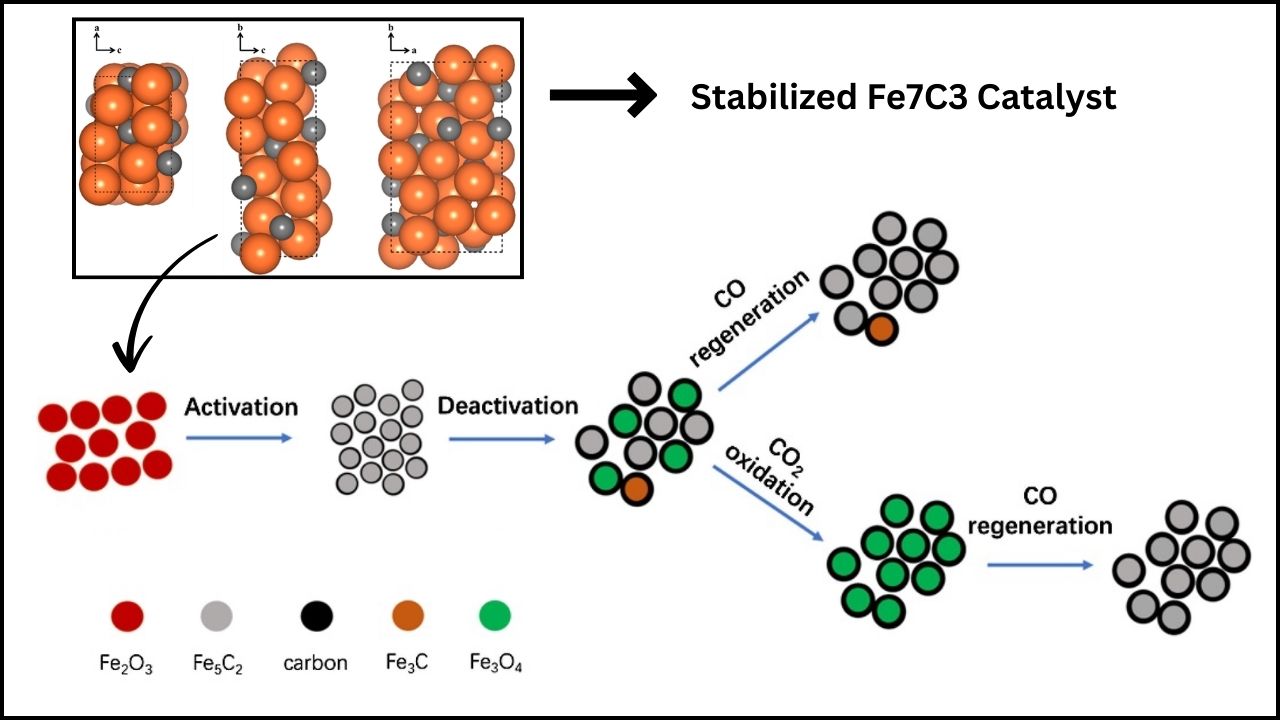Hereditary Cancer Risk Assessment Tool Validated at 99.5% Accuracy: Tempus AI’s Ambry Genetics leads with a validated 99.5% accurate hereditary cancer risk assessment tool, setting a new benchmark in digital health and precision medicine. In June 2025, Ambry Genetics, now a wholly owned subsidiary of Tempus AI, announced the peer-reviewed validation of its Comprehensive Assessment Risk and Education (CARE) Program®.
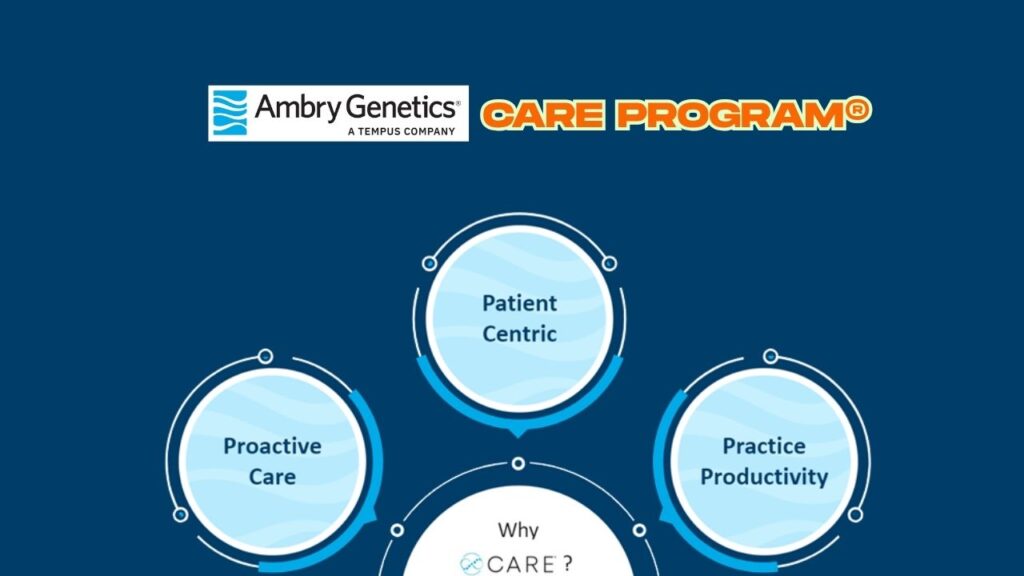
This breakthrough tool uses advanced digital technology and the latest clinical guidelines to identify individuals at increased risk for hereditary cancers—empowering both patients and healthcare professionals with reliable, actionable information.
Hereditary Cancer Risk Assessment Tool Validated at 99.5% Accuracy
| Feature | Details |
|---|---|
| Tool Name | Ambry CARE Program® |
| Validated Accuracy | 99.5% (peer-reviewed, real-world data) |
| Clinical Guidelines Used | NCCN Clinical Practice Guidelines in Oncology® |
| Cancers Covered | Breast, ovarian, pancreatic, prostate, Lynch syndrome, polyposis syndromes, and more |
| Professional Impact | Streamlines risk assessment, supports clinical decision-making, and improves patient outcomes |
| Official Website | Ambry Genetics |
Tempus AI’s Ambry Genetics is leading the way in precision medicine with its validated 99.5% accurate CARE Program® for hereditary cancer risk assessment. By combining digital innovation with clinical rigor, CARE empowers healthcare providers to identify high-risk patients efficiently and equitably, supporting early intervention and improved outcomes. As precision medicine continues to evolve, tools like CARE are essential for making personalized, preventive healthcare a reality for all.
What is the Ambry CARE Program®?
The Ambry CARE Program® is a digital health solution designed to make hereditary cancer risk assessment accessible, accurate, and efficient. It streamlines the collection of medical and family history, then applies select National Comprehensive Cancer Network (NCCN) Guidelines® to determine which patients may benefit from genetic testing for hereditary cancers.
Key Features:
- Automated Risk Assessment: CARE uses digital tools to collect patient information and automatically applies the latest clinical guidelines.
- Validated Accuracy: In a peer-reviewed study, CARE demonstrated 99.5% accuracy in identifying patients who qualify for hereditary cancer testing, matching the assessments of certified genetic counselors.
- Broad Cancer Coverage: The tool is designed to assess risk for the most common hereditary cancer syndromes, including breast, ovarian, pancreatic, prostate, Lynch syndrome, and polyposis syndromes.
- Patient Support: CARE provides education and connects patients to third-party genetic counseling at no additional cost.
How Was the 99.5% Accuracy Validated?
A study published in the Journal of the National Comprehensive Cancer Network rigorously evaluated the CARE tool using real-world patient data. The program was tested on 400 patient cases, successfully identifying 398 who met hereditary cancer testing criteria—matching the expert judgment of certified genetic counselors.
Validation Process:
- Two Rounds of Testing: CARE underwent two rounds of validation to ensure reliability in real clinical settings.
- Comparison to Human Experts: The tool’s assessments were directly compared to those made by genetic counselors, the gold standard in hereditary cancer risk evaluation.
- Continuous Updates: CARE licenses the NCCN Guidelines and is regularly updated to reflect the latest clinical standards.
This level of accuracy gives healthcare providers confidence to use CARE as a front-line screening tool, knowing it performs at the highest level of clinical rigor.
Why Is This Tool Important?
Addressing the Hereditary Cancer Gap
Approximately 5% of people carry a mutation in a cancer predisposition gene, but most are unaware of their risk. Traditional risk assessment methods are time-consuming and often miss eligible patients, especially in busy clinics or underserved communities.
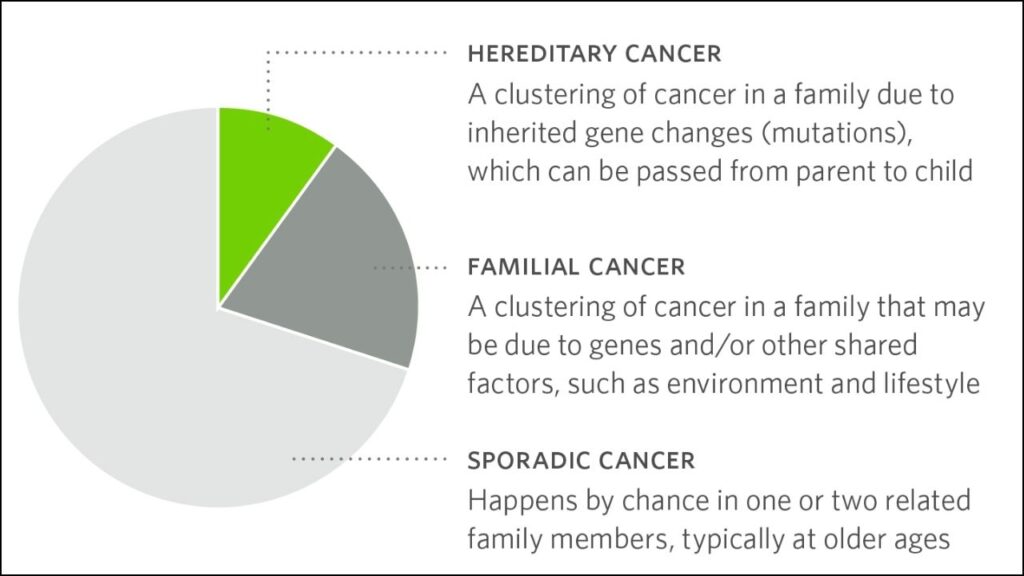
CARE bridges this gap by:
- Scaling Risk Assessment: Automating the process so more patients can be screened effectively.
- Improving Access: Making advanced risk assessment available in more settings, from large hospitals to community clinics.
- Supporting Early Detection: Identifying high-risk individuals early, when preventive care or surveillance can make the biggest difference.
Streamlining Clinical Workflows
For healthcare professionals, CARE saves valuable time by:
- Integrating with Electronic Health Records (EHR): Seamlessly fitting into existing clinical systems.
- Automating Guideline Application: Reducing the burden on clinicians to manually interpret complex guidelines.
- Facilitating Test Ordering and Reporting: Making it easier to move from risk assessment to genetic testing and follow-up care.
How Does CARE Work in Practice?
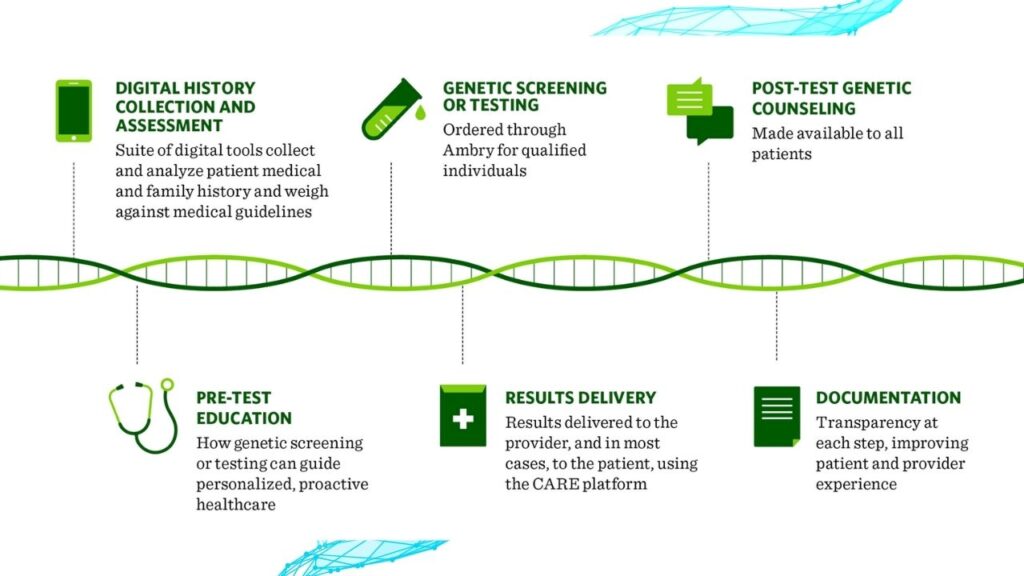
Step 1: Patient Data Collection
Patients complete a digital questionnaire about their personal and family medical history, focusing on cancer diagnoses and ages of onset.
Step 2: Automated Guideline Application
CARE analyzes the information using the latest NCCN Guidelines®, instantly determining if the patient meets criteria for hereditary cancer testing.
Step 3: Risk Communication and Support
Patients receive educational materials and, if eligible, are connected to genetic counseling for further discussion and support.
Step 4: Test Ordering and Follow-up
If the patient and provider agree, genetic testing is ordered. CARE helps track the process and ensures results are reported efficiently.
Real-World Impact and Examples
Example 1: Early Identification of High-Risk Patients
A primary care clinic uses CARE to screen all new patients. The tool identifies a woman with a family history of breast and ovarian cancer who meets criteria for genetic testing. She is found to carry a BRCA1 mutation, enabling her and her family to take preventive steps and access early surveillance.
Example 2: Reducing Health Disparities
CARE’s automated, guideline-driven approach ensures that all patients—regardless of background or location—are assessed using the same high standards. This helps close gaps in care for historically underserved populations.
Example 3: Supporting Busy Clinicians
An oncology practice integrates CARE with their EHR. The tool flags patients who may benefit from genetic testing, allowing the care team to focus on counseling and treatment decisions rather than manual chart review.
Limitations and Responsible Use
While CARE is a powerful tool, it is not designed to assess all hereditary cancer indications and does not replace the clinical judgment of genetic counselors or healthcare providers. It is intended to support, not substitute, the expertise of trained professionals.
CARE is continuously updated as guidelines evolve, ensuring it remains a trusted resource for clinicians and patients alike.
New Drug Delivery Breakthrough Uses Molecular Switches to Control When Medicine Works in the Body
New Polymer Fiber Breakthrough Releases Antibacterial Drugs Only When Needed
Custom Polymers Offer Efficient Electrochemical Separations for Greener Drug Production
FAQs About Hereditary Cancer Risk Assessment Tool Validated at 99.5% Accuracy
What is the Ambry CARE Program®?
A digital tool that automates hereditary cancer risk assessment using validated clinical guidelines, streamlining the process for patients and providers.
How accurate is CARE?
CARE has been validated with 99.5% accuracy in peer-reviewed studies, matching the assessments of certified genetic counselors.
Which cancers does CARE assess?
It covers the most common hereditary cancer syndromes, including breast, ovarian, pancreatic, prostate, Lynch syndrome, and polyposis syndromes.
Does CARE replace my doctor or genetic counselor?
No. CARE is a support tool. Clinical decisions should always involve healthcare professionals.




